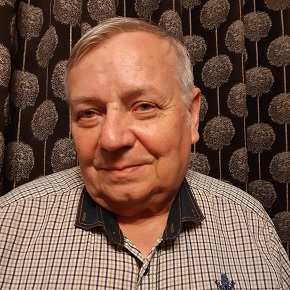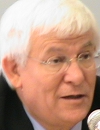Interview
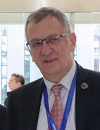 Vladimir Kriventsev: FR21 provides excellent opportunities
Vladimir Kriventsev: FR21 provides excellent opportunities
The International Atomic Energy Agency brings together the fast reactor and related fuel cycle community and countries and the wider public interested in these technologies by organising the International Conference on Fast Reactors and Related Fuel Cycles: Sustainable Clean Energy for the Future or FR21.
The Peoples Republic of China will host the conference via the China Institute for Atomic Energy, and it will take place from 10 to 13 May 2021.
The IAEA invited experts from countries with fast reactor programs and relevant international organisations to join the FR21 International Advisory Committee or IAC.
The IAC developed recommendations to the IAEA on conference topics and the central theme. It first met in June this year.
The IAC also proposed candidates for the International Scientific Programme Committee or ISPC. The ISPC will review and select abstracts and papers and shape the programme of the conference.
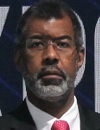 William D. Magwood, IV: We are looking for ways to encourage young people
William D. Magwood, IV: We are looking for ways to encourage young people
First of all, it is a pleasure to me. It is my third ATOMEXPO and second time in Sochi. I like the event much better this time because the weather has been nice. And I think that the organizers have done a fantastic job with this particular one. We are in a venue which is in the center of the complex with an ancient tree in the middle. I think this is such a fantastic setup.
I think that the exhibits have been much more clear and neat, and the discussions have been very informative. So I think this has been the best ATOMEXPO I have attended. It is really amazing to see so many people. As I understand, there are 3 500 people that are here from around the world to talk about nuclear technology, nuclear safety and other relating issues. So I think this has been a tremendous success and I am pleased to be here.
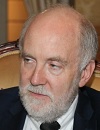 Matthew Bunn: we can still work together
Matthew Bunn: we can still work together
Well, I think Russia and the Unites States still have strong common interests in nonproliferation. Even after the U.S. sanctions in 2014 we continued to work together on the Iran nuclear deal. Unfortunately the Trump administration has pulled out of that deal.
There is some discussion and a little cooperation on North Korea and implementation of the United Nations sanctions on North Korea. It is my hope that North Korean negotiations will move forward and will ultimately involve not just the Unites States and North Korea, but also Russia, China, Japan, and South Korea. We will see if it evolves in that direction.br> I think we need to work together on the preparation for the 2020 NPT Review. Traditionally, the nuclear weapon states have had a common position on Article VI.
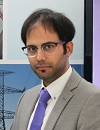 Chirayu Batra: we should decrease the generation gap
Chirayu Batra: we should decrease the generation gap
The main difference is that we are based in Vienna, where the IAEA has its headquarters. It is a place where many countries are represented. We get excellent opportunities to interact with many experts who come here.
In the case of the national young generation networks, the invited experts are primarily from the same country. But if you do some activities relevant to youths in the Agency, it is very easy to get the experts from different countries and it gives you the different level of engagement and involvement of the experts to your work.
Who could be a member of the UN NYG?
Most of the members of our organization are Agency professional staffers under the age of 37. We invite also different experts who can be of any age and who come to interact with us.
The main pillars of our organization are transfer of knowledge and professional development.
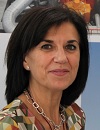 Amparo Gonzalez Espartero: our task is to help member states
Amparo Gonzalez Espartero: our task is to help member states
We are dealing with the back end of the nuclear fuel cycle until spent fuel is declared as a waste, covering storage options, reprocessing and recycling, transportation of nuclear materials and advanced fuel cycles related to Generation IV reactors.
Since our main task is to help Member States, we organize international conferences to enhance sharing information and transferring knowledge. We also draft papers and now we are drafting a high-level paper dedicated to policymakers and decision takers on different nuclear fuel cycle options, taking into consideration all envisaged options, either currently implemented at the industrial level or at the R&D stage to improve the sustainability of nuclear energy.
As you know, some countries have decided to proceed to direct disposal of spent fuel. Others have decided to reprocess and recycle uranium and plutonium using MOX fuel in some of their reactors, as France and the Russian Federation.
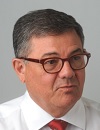 Peter Prozesky: WANO unites every company and country in the world with a commercial NPP
Peter Prozesky: WANO unites every company and country in the world with a commercial NPP
We unite every company and country in the world with a commercial nuclear power plant to achieve the highest possible standards of safety and reliability.
We achieve our mission by providing our members with a series of high quality services, or programmes. These include peer reviews, technical support missions, trainingcourses/seminars and networking events.
We also analyse safety and performance data from plants worldwide, from which we derive valuable insights on key industry issues and trends.
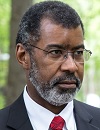 William D. Magwood, IV: it was a great trip for me
William D. Magwood, IV: it was a great trip for me
It was a very impressive expo. We have had an opportunity to meet people from around the world and to have discussions on the future of nuclear technology.
It is very interesting to discuss with people asking the same questions and looking for the same answers.
It has been a great trip for me. I learned more about what the Russian organizations are doing. We saw some new opportunities for cooperation and also I heard about some activities I would like to learn more about.
For example, we learned about the Rosatom School, which shows that Russia puts great importance on teaching children about the significance of nuclear science and technology. We are very interested in it and there is an opportunity for a future cooperation.
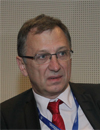 Vladimir Kriventsev: we know ability of fast reactors
Vladimir Kriventsev: we know ability of fast reactors
The FR17 conference may have been the most important conference on fast reactors and related fuel cycles ever held. As I know all the participants appreciated the preparation made. The Agency and Rosatom did very good work in organizing this event. For me it was the first big conference I organized together with my colleague, Ms. Amparo Gonzalez, from start to finish.
In the end, what came of it? It was about 600 participants from around the world and we received about 450 technical papers presented on different topics related to fast reactor development in the future. We also had 11 keynote speeches delivered by the countries that are doing research on fast reactors and by four international organizations. These are some of the key numbers.
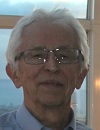 Siegfried Hecker: we are doomed to cooperate
Siegfried Hecker: we are doomed to cooperate
When I look at the past, I have always thought that cooperation was extremely important.My feeling is that we did a lot of good; there were a lot of benefits to both countries. ItТs often not appreciated that it was actually beneficial to both countries. Itis unfortunate that it came pretty much to an end between U.S. and Russia.
And I also believe very strongly that we are not finished. There are still certain issuesin the nuclear arena that are of common interest. The way that I look at it, we have to cooperate to get the best from nuclear technologies. That would mean nuclear energy, future of nuclear power, and nuclear medicine, all of those things where nuclear does a lot of good, and weТre not done.
The other is how to prevent the bad things from happening in the nuclear arena. That means the issue of nuclear materials security and safeguarding.
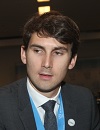 Denis Janin: young is determined on heart
Denis Janin: young is determined on heart
The International Youth Nuclear Congress (IYNC) is a non-profit organization started as a movement in 1997, we are now celebrating our 20-year anniversary.
From the very beginning, we had support from the Russian Federation and personally from Mr. Victor Murogov, from the IAEA, the USA, the Republic of Korea, the European Nuclear Society, France, Germany and many other countries and organizations.
Our congress is now a large global network joining 50 countries and non- governmental organizations. We are gathering the national nuclear young generation networks (YGN). For example, in Russia you have the Russian nuclear society which has the youth council what is in turn represented in the IYNC.
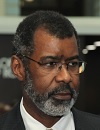 William D. Magwood IV: Make innovations available as soon as possible
William D. Magwood IV: Make innovations available as soon as possible
NI2050 is designed to identify the most important areas of technologies necessary to enable us to reach our goals in 2050 in terms of reducing carbon emissions. We are hoping to gain global agreement on what those priorities are and what barriers keep us from bringing those technologies come to the market. We will then work with all our member countries to find ways to break through those barriers and make those technologies available as soon as possible.
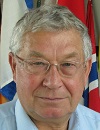 Victor Murogov: Shift in Priorities
Victor Murogov: Shift in Priorities
We observe the loss of knowledge which is not used. In the nuclear sector, it is reactor technologies that suffer most of all from this. Russia's construction of reactor BN-800 is an example of the preserved knowledge on fast sodium-cooled reactors but, unfortunately, this is unique experience.
Thus, it became the basis for another priority trend of the IAEA activity - Nuclear Knowledge Management (NKM), which is the theme of the primary resolution of the General Conference 2002 and a subject-matter of the first international conference on NKM in the IAEA in 2004.
The tasks were specified. There was only one problem: lack of resources. The IAEA budget is drawn up for two years. Even if you convince the Director General of the necessity to develop this or that project, he would not be able to help you until a new budget is passed.
For such cases, non-budgetary funds are envisaged. If a country finds the work in question important, it can make an extra contribution.
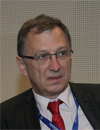 Vladimir Krivientsev: FR17 - The Olympic Games of Fast Reactors
Vladimir Krivientsev: FR17 - The Olympic Games of Fast Reactors
The FR17 is a major conference on fast reactors and related fuel cycles that is being organized by the IAEA. I would like to take this opportunity to thank the Government of the Russian Federation, represented by Rosatom, for agreeing to host the conference and for arranging for the participants a visit to the Beloyarsk NPP and the brand-new Russian BN-800 fast reactor.
The conference will be the third of its kind. The first was held in 2009 in Kyoto, Japan, and the second was in Paris in 2013. Now, it is Russia turn. The FR conferences are the largest fast reactor events in the world. In terms of their significance and how often they are held, you could compare them with the Olympic Games.
Preparations for FR17 are in full swing. From an organizer standpoint it is a complex event requiring a great deal of effort and coordination.
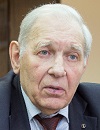 Vladimir Poplavsky: It is Too Early to Compare Lead to Sodium
Vladimir Poplavsky: It is Too Early to Compare Lead to Sodium
As far back as in1949, Alexander Ilyich Leypunsky submitted to the Government an internal report in which he stated the fast technology potential in terms of nuclear fuel breeding; afterwards these ideas formed the basis for the concept of fast reactors. To a large extent, this concept is still very topical nowadays and not only in Russia.
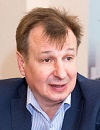 Dmitry Klinov: BFS is being renewed
Dmitry Klinov: BFS is being renewed
The task of the BFS retrofitting and upgrading arose in late 2010 as a consequence of the enormous difficulties that we had encountered in renewing the licence to operate our fast critical facilities.
These difficulties were, in turn, caused by functional obsolescence and physical wear on both permanent and scientific equipment that provides operation of the facilities.
The Federal Service for Environmental, Technological and Nuclear Supervision warned us that they will flatly refuse to renew the operating licence. There was no special-purpose funding for upgrading the BFS complex whereas the amount of work to be done was expected huge. Selection of the BFS complex for retrofitting and upgrading as part of the Federal Target Programme on new generation nuclear energy technologies proved a way out.
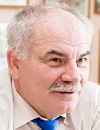 The Do-All Accelerator
The Do-All Accelerator
Yes, indeed, together with the Dutch specialists, we performed the startup of a new accelerator, and that is an event significant for our Institute.
Before getting into the talk about the plans of its future use, I would like to stress a minor but interesting point.
It happened so that the 50-th anniversary of one of our Dutch colleagues, Martin Bos (you can find his picture in our accelerator startup coverage), fell on his business trip to Russia. So, for Martin his trip to Obninsk became essential for two reasons: the successful startup of the accelerator and a milestone in his life.
What is your impression of the joint work with the colleagues from the Netherlands?
They are very knowledgeable and competent experts who know their equipment very well. Let me quote an example. As soon as a continuous beam was generated, the next step was to test the operation in the pulse mode. It was necessary to make sure that the required parameters are maintained, i.e. duration of 2 nanoseconds and so on.
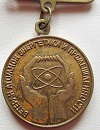 Nuclear Veterans for the Future
Nuclear Veterans for the Future
Whom should we call veterans? It is a good question. At present, we are shifting the center of gravity to persons being prepared for retirement. They still have powder in the powder-horns, they worked under market conditions, and we are going to involve them in the veteran movement.
Do all veterans are anxious to share their knowledge with young people? I can answer this question. We haven't witnessed mass rejection on the part of veterans since the Union foundation. There was no fear of knowledge transfer. On the contrary, we saw the support of our ideas and the desire for consolidation.
Of course, there were cases when we heard something like - Don't bother me; I am not going to share knowledge with anyone because you'll fire me thereafter as not wanted. But when we started to talk to such people, to explain to them our aims and purposes, the negative attitude vanished, and those people became our partners.
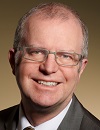 Questions for Jerry Hopwood
Questions for Jerry Hopwood
Candu Energy Inc. is a leading full-service nuclear technology company providing nuclear power reactors and nuclear products and services to customers worldwide. Candu Energy acquired the commercial reactor division of AECL in October 2011; Candu Energy is a wholly-owned subsidiary of SNC-Lavalin Inc, Canadas largest Engineering, Procurement, and Construction (EPC) company, with offices in over 40 countries.
Candu Energy is responsible for marketing Canadas nuclear power technology (developed by AECL). Our 1,400 highly skilled employees design and deliver state- of-the-art CANDU reactors, carry out life extension projects, offer operations, maintenance and plant life management services for existing nuclear power stations.
CANDU reactors are an important component of clean air energy programs on four continents with over 22,000 megawatts of installed capacity. Candu develops products to deliver safe, reliable, affordable and CO2-free energy with a view to the future, while meeting the global nuclear industrys highest safety and regulatory standards.
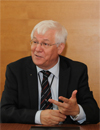 Yanko Yanev: the 0-0 game
Yanko Yanev: the 0-0 game
Unfortunately, we live in this age of narrow political thinking. Each of our politicians think how to survive, whether he will be the next convocation of the parliament or the government or not.
So he finds support from a particular lobby. If he would contact the anti-nuclear lobby, he will cry how bad is the Belene project. If he is supported by the nuclear lobby, he would insist on the resumption of construction of Belene nuclear power plant.
This situation is not conducive to normal development. We must move away from lobbying approach. Instead, we have perform an objective evaluation of the energy system in Bulgaria.
We have now 35% of electricity generation produced by nuclear power plants. It was 50%, but when four VVER-440 units have been closed the nuclear fraction of power balance was downed to 35%. If we build a pair of reactors-thousanders, we will again meet 50% mark.
Despite such a large share of nuclear generation, we still do not have a clear understanding of how nuclear power will be developed in Bulgaria.
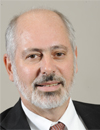 Jacques Repussard: knowledge, independence, proximity
Jacques Repussard: knowledge, independence, proximity
During the French revolution, our ancestors chose a three word motto Liberty, equality, fraternity. Our institute has its own motto: Knowledge, independence, proximity.
Knowledge is indispensable in our work. Independence is also important, because there are conflicts of interest, economic aspects, and I have to be able to sign reports without any pressure being placed on me. And finally we need to be close to all problems, to be close to all players, including journalists, and to provide information and answers to all the questions you ask us.
To illustrate the point about proximity: several months after I joined IRSN a request from Greenpeace arrived addressed to me. I asked the experts to prepare a response. They told me: Mr Repussard, we're not used to responding to anti-nuclear organisations. To which I replied: We will not reveal any state or trade secrets, but we will not leave them without any answer.
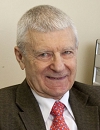 Booming as a Driving Force to Trade (Reactors?). Professor Georgy Toshinsky: talk on boomed reactors.
Booming as a Driving Force to Trade (Reactors?). Professor Georgy Toshinsky: talk on boomed reactors.
Professor Toshinsky, currently small power reactors are much spoken about. For example, in the USA a great number of such projects are underway. Most of the designs are light water reactors; but there are some projects, which will be interesting for designers of fast reactors, such as traveling wave reactors, Hyperion, 4S, and some others.
Indeed, these are very interesting innovative projects, which development is at different design stages. They possess the following common feature: their development was preceded by a vigorous advertising campaign in mass media, which produced an impression that the real aims had been almost obtained or would be easily achieved.
Now it is too early to draw a conclusion for many of the projects that you named due to lack of the technical information. I will try to assess them on the basis of the currently known data.
Let us start talking on traveling wave reactor, i.e. TWR. The first question: is it true the TWR Project that was so much spoken about in mass media does not exist any more?
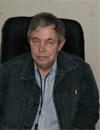 Alexander Chistozvonov: end of the Romantic period
Alexander Chistozvonov: end of the Romantic period
A few words on the skill. Today, the army of managers is earnestly believing that one can take the man responsible for the licensing of alcoholic beverages, and put it on licensing, and even to supervise the nuclear reactor. But it did not work.
In order to competently oversee and understand what you are talking with supervised, you must be highly qualified. Perhaps, at the level of PhD.
Let me explain to you the example. Suppose I tell you that in this particular reactor, the effective beta equals to 0.7, and this is a situation that improve nuclear safety. In order to understand what I actually said, you should have some education.
As a minimum, to know what is beta and what is being measured.
Not exactly. You can learn what an effective beta, or physical beta, from a directory. You need to feel the object, to understand the arising paradoxes, which for the everyday consciousness amazing.
The topic of my dissertation was to study the probability of accidents associated with the introduction of positive reactivity.

